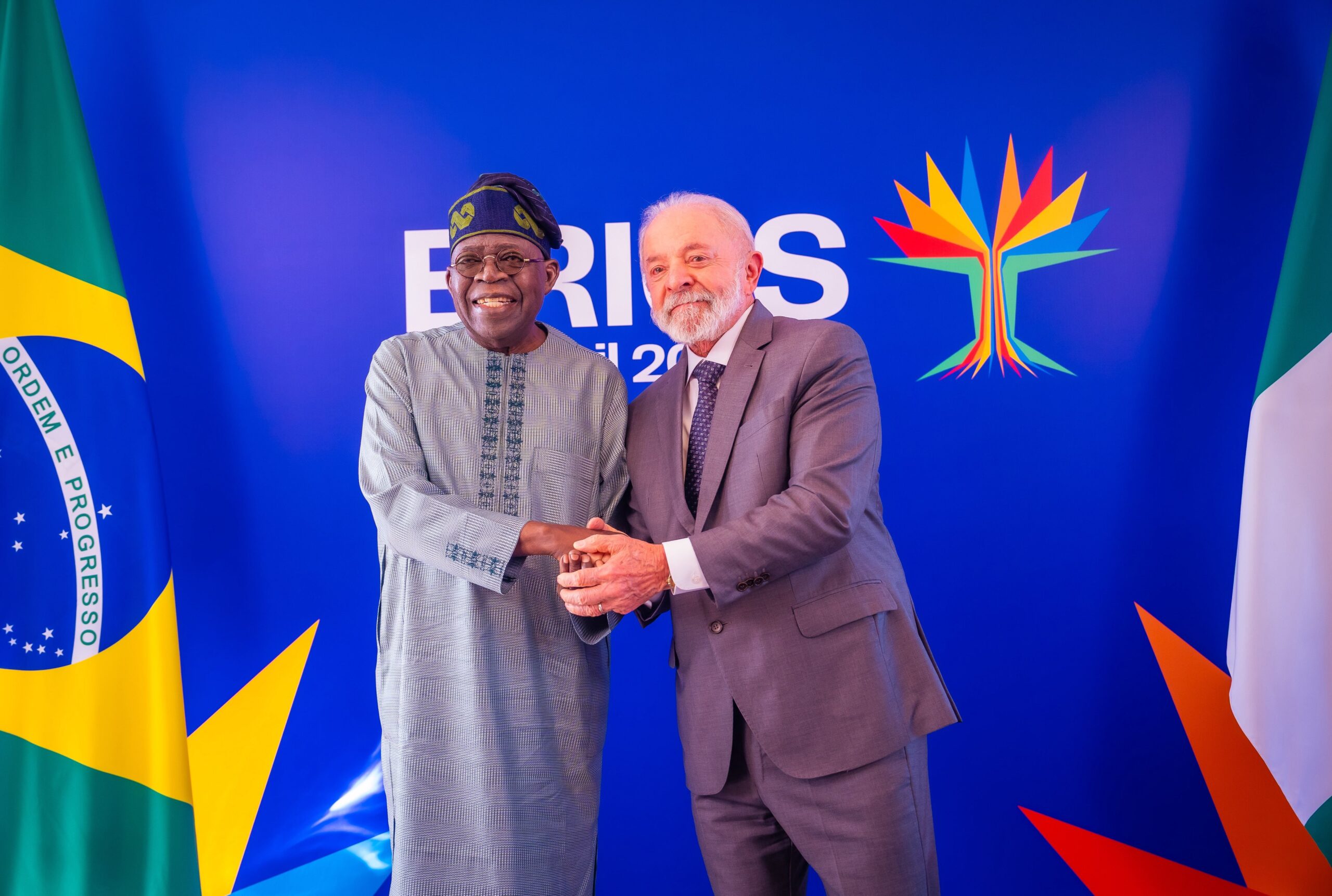In a dramatic shift that may redefine Nigeria’s place in the global order, President Bola Ahmed Tinubu officially participated in the 17th BRICS Summit held in Brazil, marking the country’s formal alignment with the influential bloc of emerging economies. The move, however, drew swift backlash from the United States, which threatened a 10% tariff increase on exports from BRICS-aligned countries.
U.S. President Donald Trump was among the first to respond publicly, describing Nigeria’s decision as a betrayal of a long-standing strategic partnership with America. On his Truth Social platform, Trump warned that any nation aligning with BRICS could face punitive tariffs, a clear attempt to curb the bloc’s growing appeal among developing nations.
YOU CAN ALSO READ: Inside Lagos’ Bold Tech Agenda: Commissioner Alake Shares Vision
Despite the mounting tensions, President Tinubu was warmly received by Brazilian President Luiz Inácio Lula da Silva and described the summit as a “clarion call” for global reform and a more equitable distribution of power. Nigeria’s entry into BRICS is seen by many as a signal of its intent to strengthen South-South cooperation and challenge Western-dominated institutions.
At the summit, Tinubu made a forceful case for Africa’s fair representation in global governance. “Africa has contributed the least to global emissions, yet suffers the most,” he noted, underscoring Nigeria’s demand for climate justice, equitable financing, and universal healthcare. His remarks aligned with the broader BRICS agenda, which includes reforming global trade structures, enhancing climate equity, and promoting multipolarity. Nigeria joins a growing list of new BRICS partners, including Saudi Arabia, Iran, Egypt, and Ethiopia, all united in their ambition to shift economic power away from traditional Western strongholds.
The U.S. response, particularly from former President Trump, has intensified concerns about the potential fallout. In 2024, Nigeria exported $1.76 billion worth of goods to the U.S. under the African Growth and Opportunity Act (AGOA), making it the second-largest beneficiary after South Africa. Now, that preferential access hangs in the balance.
Analysts warn that Nigeria could face reduced export competitiveness in crude oil, agriculture, and manufacturing if tariff threats materialize. PwC’s Strategy division has raised flags over the vulnerability of non-oil exports and the broader impact on foreign direct investment. Still, not all experts believe the danger is immediate.
“While the threat is serious, Nigeria’s oil and gas exports remain largely exempt under current U.S. policy,” said Professor Adeola Adenikinju of the Nigerian Economic Society. He added that Nigeria’s deepening trade ties with BRICS members, especially China, India, and South Africa, make this pivot strategically viable in the long term.
Economic policy experts have urged caution. Dr. Muda Yusuf, CEO of the Centre for the Promotion of Private Enterprise (CPPE), stressed the need for Nigeria to assert its sovereignty while avoiding direct confrontation. “Diplomacy must guide our response. The goal should be to manage the transition carefully and protect our economic interests,” Yusuf advised, noting that even established trade facilities such as the Dangote Refinery could be impacted by abrupt policy shifts in the U.S. He added, “Nothing should be taken for granted. In today’s unpredictable geopolitical climate, even previously exempt sectors like oil can become bargaining chips.”
At its core, Nigeria’s BRICS decision is more than a response to short-term economic pressures, it is a recalibration of its global alliances. BRICS leaders issued a joint statement at the summit rejecting unilateral sanctions and calling for multilateral trade reform in line with World Trade Organization principles. This position directly challenges U.S. protectionism and the use of economic tools to enforce geopolitical influence.
YOU CAN ALSO READ: Inside Lagos’ Bold Tech Agenda: Commissioner Alake Shares Vision
“Nigeria is not abandoning the West, it’s adapting to a world where global power is increasingly diversified,” said Professor Adenikinju. “China, India, and South Africa already dominate our trade landscape. BRICS aligns with our strategic trajectory.”
As the August 1 tariff deadline draws near, Nigeria’s next diplomatic steps will be closely watched. The coming weeks will determine whether the BRICS gamble enhances the country’s global influence or strains its traditional economic lifelines. For now, one thing is clear, Nigeria has entered a new era of foreign policy, one that seeks to balance sovereignty with pragmatism, vision with caution, and national interests with a rapidly shifting global landscape.










